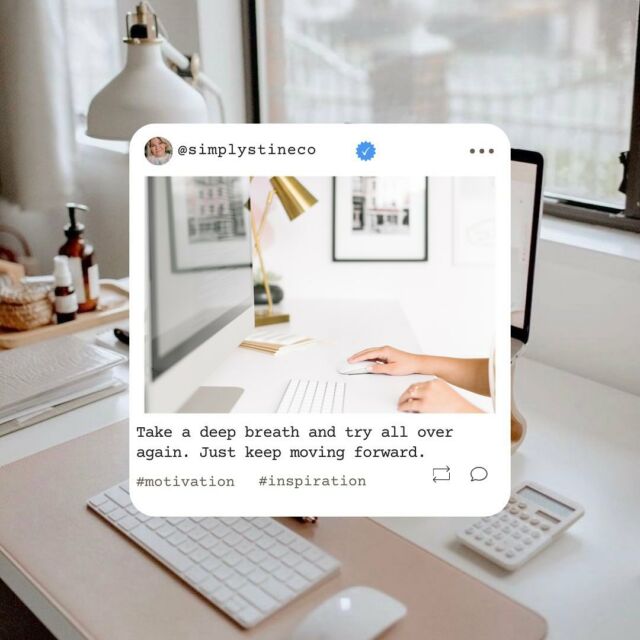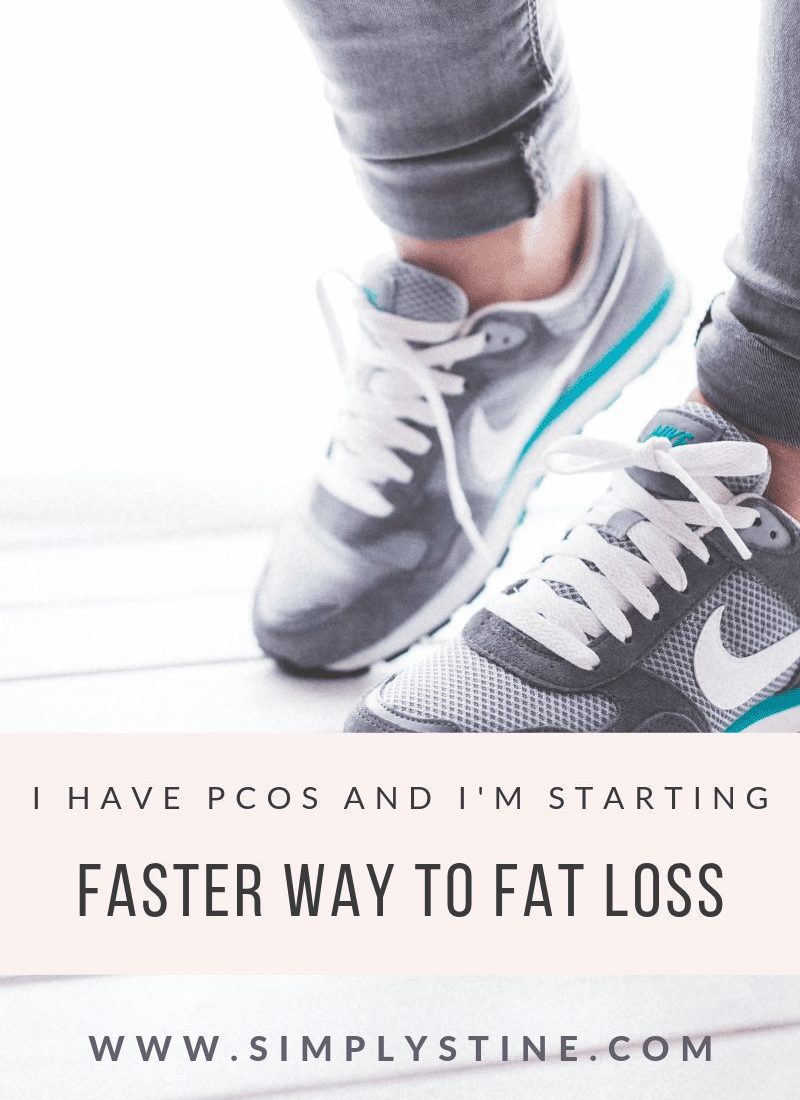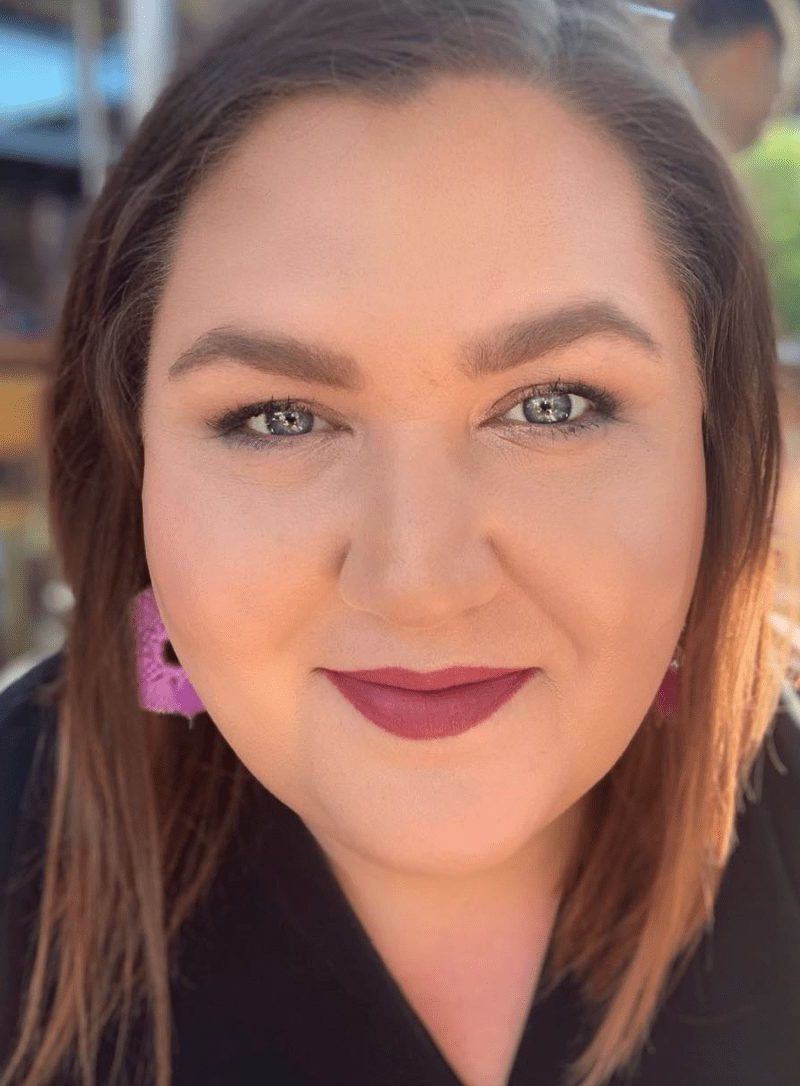I’m talking health today on Simply Stine. Specifically, my experience with Ozempic and Insulin Resistance. If you don’t know, I have Insulin Resistant PCOS. Right now, Ozempic is all over the news and social media. It’s the new “IT” drug for losing weight and so many people are jumping on the bandwagon (celebrities included). I’m not on Ozempic for weight loss. I’m on Ozempic because I have Insulin Resistant PCOS and I’m trying to lower my A1C. Here is my experience with this medication so far. The good and the bad.

What Is PCOS?
So first of all, if you aren’t familiar with PCOS, know that it’s an endocrine hormonal condition that affects many women. Issues ranging from excruciating painful periods, ovarian cysts, missed periods, super long periods, excess body hair, weight gain, thinning hair, infertility, and a lot of other issues. Some women have a bunch of symptoms, while others have hardly any symptoms. It’s all different for each individual.
For me specifically, my PCOS was also linked to being Insulin Resistant. That basically means my body doesn’t know how to effectively use insulin, resulting in higher glucose levels. Which then signals the body to produce extra insulin. Being insulin resistant can lead to becoming Diabetic.
A1C is a test that is used to measure the average of your blood sugar levels over 3 months.
As I’ve gotten older, I have had more and more issues with my insulin resistance. I’m on two other medications for diabetes and no matter what I was doing, I wasn’t getting my A1C at a number both myself and my doctor were happy with. This is when she suggested Ozempic.
What is Ozempic and Insulin Resistance
Ozempic, or Semaglutide, is a prescription medication that is used for treating diabetic patients and those with A1C issues. It’s a once weekly injection that is used to help with blood sugar issues. The reason it’s all over the news and social media is because its also been a prescription that many are turning to because weight loss seems to be significant while on this medication. So yes, even those without having diabetic issues are taking this medication. Here are some facts about Ozempic.
About mid year last year my A1C was at 10.2, which is not good at all. I wasn’t watching everything I was eating, I wasn’t exercising as much as I should have been, and I was super stressed. All of those mess up my A1C numbers. This was while taking Metformin (aka the devil’s medication if you ask me) and Glipizide. So after seeing my number, my doctor gave me a stern, but necessary talking to. She then suggested Ozempic, but I wasn’t comfortable starting something like that. I asked to give me three months and let me see what I can do myself.
I worked hard on taking care of myself. I monitored what I was eating better (less carbs and sugars) and I tried to move my body. I took another A1C test again 3 months later and I was still at a 9.1. For reference: Pre-diabetes is 5.7-6.5%. Anything over 6.5% is considered diabetic.
At that time, I knew I needed to try something different to help manage my A1C levels. I started taking Ozempic (still with my Metformin and Glipizide) in November of last year. I’ve been on different doses since then. Starting at .25, then to .50 and now I’m on the 1mg dosage.
Ozempic and Insulin Resistance
When my doctor first talked to me about Ozempic last year I had no idea it was some “IT” prescription. I hadn’t really heard about it until this year. So I honestly had no idea people were taking it to lose weight. Have I lost weight? A little bit. I’ve lost about 15 pounds BUT I’ve also been really working on what I’m putting in my body and I’m moving my body a lot more than I was.
On the starting dose of .25mg I had some side effects at first. Nausea and stomach issues were the worst. I was on .25 for 4 weeks, and then you up your dosage to .50mg. At this time, I noticed I wasn’t very hungry at all (this is normal as Ozempic slows down digestion and you feel full) BUT I was also getting horrible acid reflux. I took an OTC medication for that (helps a ton) and then four weeks later, upped my dosage to the 1mg. The first two weeks I felt decent. Not great, not horrible. You’re supposed to alternate your injection site, so on the third week, I used my thigh. That was a horrible week.
- I was nauseous constantly to the point I thought I’d throw up most days
- I had the absolute worst bloating and gas issues. Honestly, I have never burped so much in my life.
- Let’s just say that the bathroom was my best friend that week.
- I had to force myself to eat (seriously, I was never hungry)
- All I wanted to do was sleep and lay around
I felt miserable. So I messaged my doctor. We decided to go back down to .50mg for a bit and see if that helped. She also gave me a prescription for being nauseous and that helped tremendously. I still also take the OTC medication for Acid Reflux daily at this point.
I’m now back on taking 1mg this week. I’m slightly nervous as I do not want to feel like I did before, but we shall see. I will not be using my thigh as the injection point, ha. I’m opting for my stomach this time. (You can rotate between your stomach, thigh, and arm)
Cost of Ozempic
One of the biggest worries I had was how expensive will this prescription be for me. Yeah, I have insurance, but not all insurance plans will cover this prescription. Luckily, mine does. HOWEVER there is a prescription savings card that will allow you to get the prescription for $25.00 for 24 months. Not going to lie, it took some work to get this savings card to actually work for me. After a lot of back and forth with my insurance company and my doctors office, we finally got it approved. Don’t be discouraged if you have to go through this as well. I tried to be patient and kept at it. A pharmacist finally helped me get it figured out.
After the savings expires for me, my insurance will cover the prescription for $50.00. If you were getting this out of pocket, it seems to be about $1000 or more. Which obviously limits a lot of people from being able to access this medication that could benefit them if they’re diabetic. Fingers crossed my insurance will still approve this prescription or I will no longer be on it.
My A1C After 3 Months on Ozempic
Alright. Here’s the information you’re probably most interested in. I just had my A1C tested and it was now at a 6.5%. I went from a 10.2, to a 9.1 and now a 6.5%. That is incredible. My doctor called with the results and was thrilled with that number.
This has been the most effective drug I have used so far for my A1C levels. Do I love the side effects? No, but they are getting more manageable the longer I’ve been on this medication. The most difficult issue is the constantly feeling full. I have to make sure I’m getting enough protein during the day. I sneak protein powder into my smoothies, oatmeal, and really do my best to keep at it during the day.
As far as the nausea and gas issues, those are different daily. It depends on what I’m eating and what I’ve done that day. Most days I’m pretty much ok. I’ve started taking a Superfoods powder that I think is helping? I’ve cut back on a lot of carbs and fried foods. Which I needed to do anyways. I’m also eating breakfast daily, increasing my water intake (working hard on this) and moving my body. I’ve added in Olipop which I am LOVING.
Each day is a fresh start. That’s what I keep telling myself.
The most common side effects of Ozempic seem to be: Nausea, stomach pain, bloating, constipation, diarrhea, vomiting. (In my experience, they decrease the longer you’re on the medication)
My Goals With Ozempic
So right now, I’m hoping that with being on the 1mg, I can take my A1C even lower into the prediabetic range again. Is this a medication I’ll have to be on long term? Probably so. I’d like to get to a point where I can lower my dosage of Metformin and Glipizide or get to a point where I can stop taking them for good.
Again, I’m not on Ozempic for weight loss so I can’t really speak about those benefits. I’ve lost weight, but I’ve also been making major lifestyle changes. I do know people who have lost a significant amount of weight on a Semaglutide prescription. I don’t know if that will happen for me or not. I’m not super concerned with it, but if it happens I wouldn’t be upset. I do need to be at a healthier weight, but I’m not fixating on numbers.
So right now I’m happy with the results from the Ozempic. It’s so frustrating to be at a point where you can’t control what’s happening in your body no matter how hard you try. This has been a game changer so far and I’m happy with the results. I don’t love some of the side effects, BUT I’m trying to be tough and see the light at the end of the tunnel.
I hope that you’ve found some information on this post useful if you’ve been wondering about Ozempic and Insulin Resistance! If you’re considering starting this medication, I urge you to do your research and talk to your doctor.

 I saw the solar eclipse.
I saw the solar eclipse.











Wow. This was very insightful. I too have PCOS and I am struggling with some of my numbers too. I will talk to my doctor about this and other options.
I’m so glad that this was insightful for you! I’d for sure recommend talking to your doctor first and seeing what your options are!